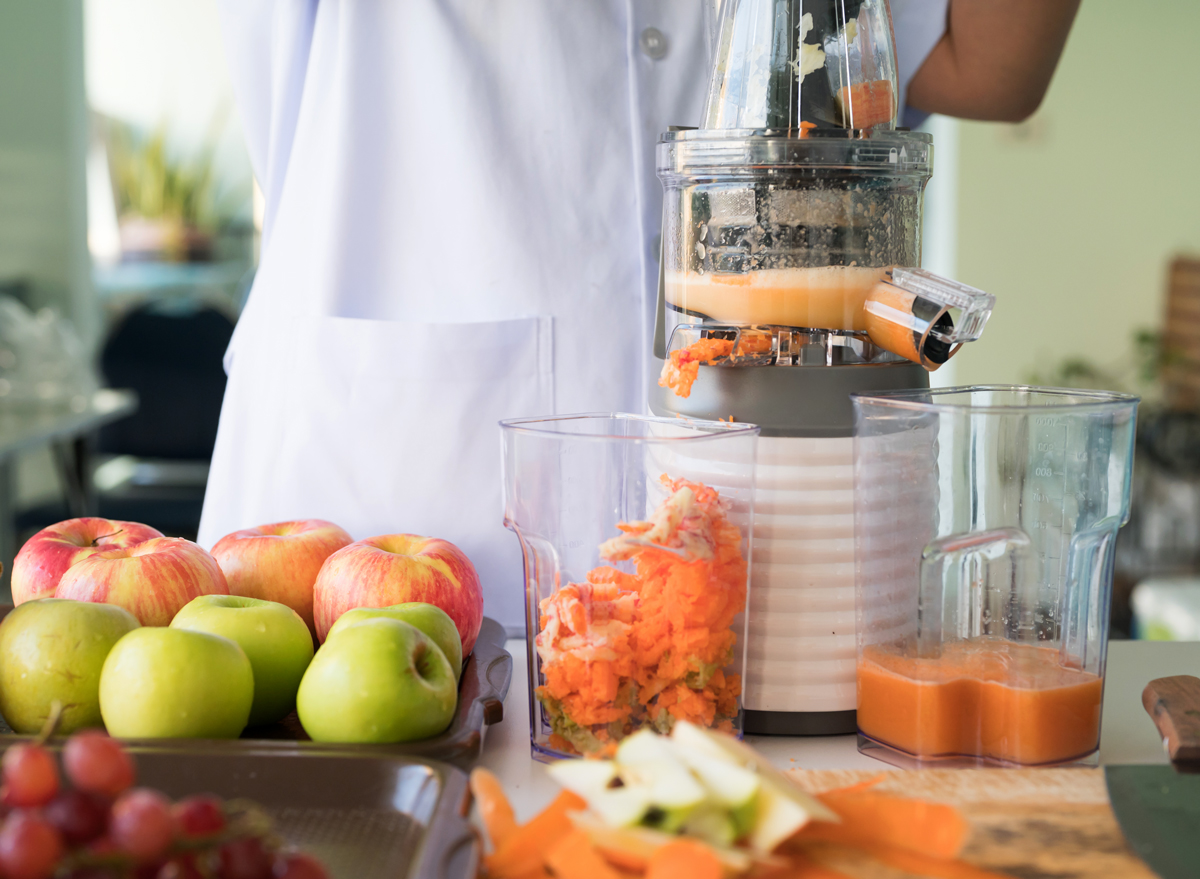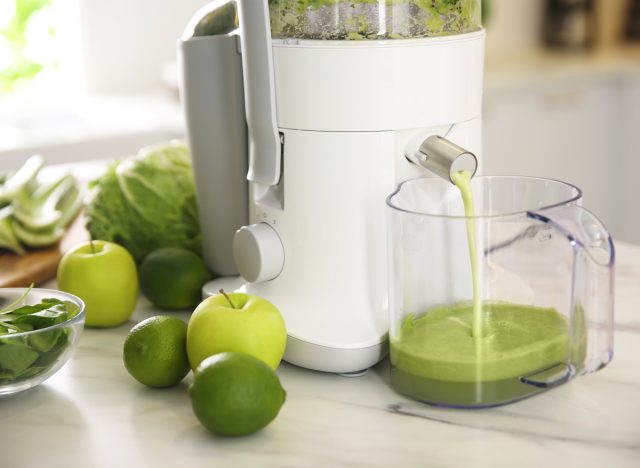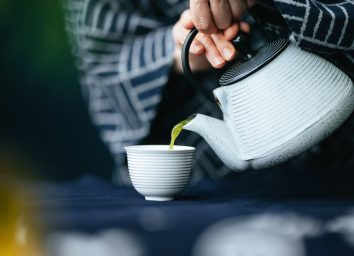Is Juicing Healthy? We Asked Dietitians for the Truth

When the new year rolls around, there is no doubt many people are dusting off their juicers in preparation for the post-holiday "detox." While detoxing and other forms of restrictive eating are commonplace for many adults following the holiday season, they may not be the healthiest approach. The practice of "eating, drinking, and being merry" from Halloween to New Years, followed by days or weeks of restrictive juicing plans in January could lead to nutrient deficiencies, energy imbalance, and more.
While there may be some positive components of juicing, if you're wondering "is juicing healthy?" we're here to argue that it shouldn't be your main form of nutrition—in the New Year or any other season. Read on, and for more, don't miss learning about The Best Fruits to Shrink Belly Fat, Says Science.
What are the pros of juicing?
Juicing typically entails pulverizing fresh fruits, veggies, and herbs to separate the liquid components from the fibrous flesh. One upside of juicing is you can significantly increase your intake of fruits and vegetables by including fresh produce juice each day. In fact, one review notes fruit and vegetable concentrates, like fresh juice, can increase blood levels of many nutrients, including, folate, antioxidants, and vitamin C.
What are the cons of juicing?
While many nutrients remain intact with juicing, others are significantly reduced. This is the case for fiber, a nutrient that can play roles in lowering blood cholesterol, digestive regularity, and blood sugar stabilization. When the liquid is separated from the pulp of fruits and veggies during juicing, the majority of the fiber is left with the pulp which is often discarded. This means juices do not possess the same benefits that can be found in the whole fruit and veggies used to make the juice.
Another downside to juicing is it contains minimal amounts of essential nutrients, like protein and fat. This makes juicing less satiating, and if these nutrients aren't consumed elsewhere in the diet, could lead to deficiencies with symptoms like issues with hair, nail, and skin integrity; muscle loss; and delayed wound healing.
Juices are also relatively low in calories, which makes it more likely for you to experience a significant calorie deficiency during prolonged periods of juicing.
Is juicing healthy?

When fresh produce juice is a component of a well-rounded diet, it can add vitamins, minerals, and antioxidants to your nutrient intake. This is a positive usage of juicing and a reasonable way to increase your intake of valuable fruits and vegetables. However, when juicing is used as a way to replace whole foods and balanced meals on a regular basis, this may do more harm than good.
If you are tempted to try juicing, replace no more than one meal per day with juice, and ensure your other meals and snacks contain adequate amounts of nutrients not found in juice, like protein, fat, and fiber. Better yet, instead of juicing, try increasing the number of whole fruits and veggies you eat so you are getting the benefits of juicing in combination with the positive attributes of fiber. Consider starting with The 7 Best Fruits You Should Be Eating Every Day.









